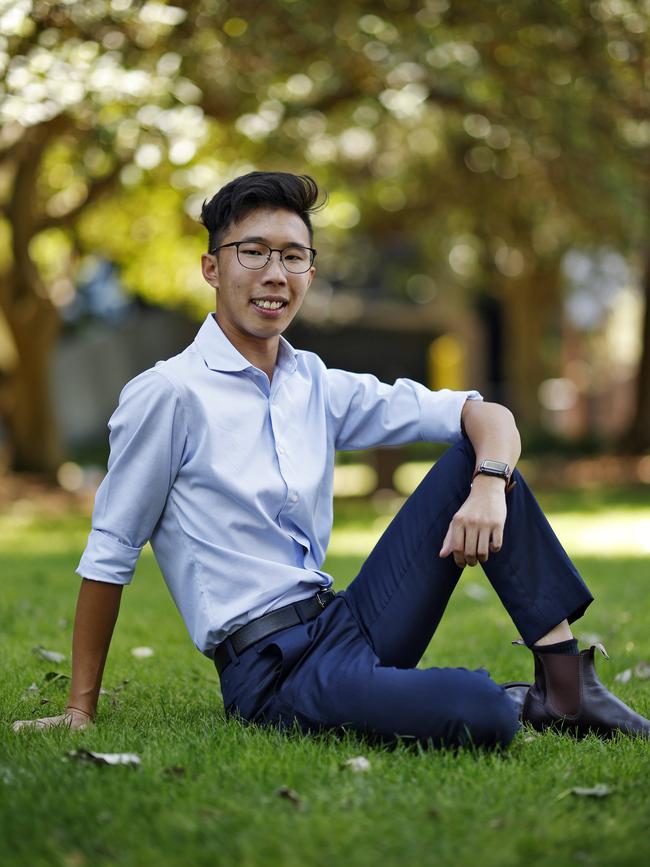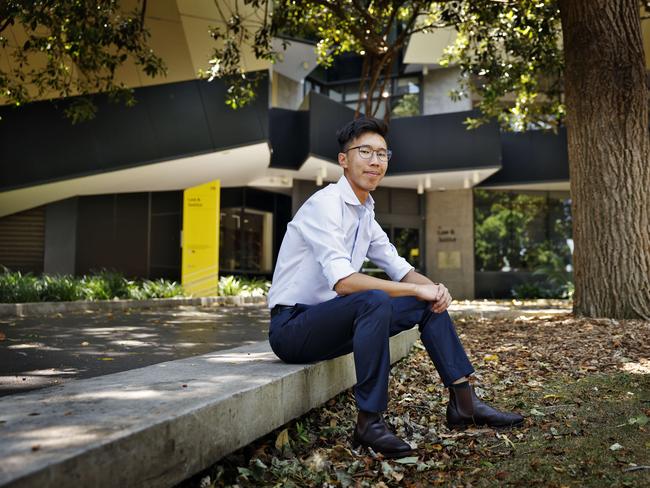UNSW reveals law, medicine students neck-and-neck with ATAR-reduced enrollees
University students enrolled in the most challenging degrees with reduced ATARs are scoring marks only a few points below the rest of the intake, new figures reveal. See the results.
Tertiary
Don't miss out on the headlines from Tertiary. Followed categories will be added to My News.
University students enrolled in the most challenging degrees with reduced ATARs are scoring marks only a few points below the rest of the intake, new figures reveal.
Weighted marks for UNSW’s Bachelor of Law and Bachelor of Medicine programs show undergraduates are achieving between 69 and 74 points across courses and cohorts on average, including those who entered their degree through the uni’s “gateway” lower-ATAR access scheme.
The “Gateway Equity Target” cohort in UNSW- students eligible for entry with lower minimum ATAR requirements if they live in a low socio-economic area – passed their law classes more than 94 per cent of the time in 2024, compared with 96 per cent of undergraduates generally, with the gap consistently hovering between two and three per cent since 2021.
More Gateway students (98.6 per cent) continued on in their law degree last year than the rest of the domestic intake (97.5 per cent), with similar rates for the Bachelor of Medicine (96.2 per cent and 98.6 per cent respectively).
Both general cohort and Gateway medicine students are gaining weighted average marks (WAMs) worth a ‘credit’, with a gap of 3.5 points between them.
Would-be doctors from low-SES areas can enter on a reduced ATAR from 96.00 down to 91.00, but must still perform in the top 50 per cent of University Clinical Aptitude (UCAT) test-takers and go through an interview process, while law students are lowered down to 85.00 from around 96.00.
UNSW Dean of Law and Justice Andrew Lynch said universities must strike a balance between admitting disadvantaged students and ensuring they’re still capable of doing well in class, but these results show UNSW is “clearly doing something right”.

“It’s not enough to get students into the program, it’s about then keeping them in the program and working with them over the life of the degree to set them up for success,” he said.
“What you definitely don’t want to do is have an admissions program, which – with perhaps the best of intentions – is only going to set up students to fail. There is nothing worse, I think, than to create an educational pathway that it’s not appropriate for the student to take.”
Program ambassador Daniel Tang is at the halfway point of a six-year double degree in law and criminology and is the first in his family to attend university in Australia, but said it didn’t surprise him that he and other Gateway students are holding their own against the rest of the cohort.

“University is such a great equaliser, and as a gateway student studying the law program, I don’t feel any different compared to, say, your average student who got a 99.5 (ATAR) and got into the program straight away,” he said.
“I know that I worked really hard to get where I need to be.
“There are so many people who are capable of studying law, but can’t get over that first hurdle of getting in, and so that pathway … is such a good way to achieve your dream.”





